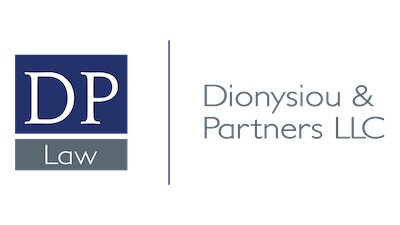Best Sanctions & Export Controls Lawyers in Egkomi
Share your needs with us, get contacted by law firms.
Free. Takes 2 min.
List of the best lawyers in Egkomi, Cyprus
1. About Sanctions & Export Controls Law in Egkomi, Cyprus
Sanctions and export controls in Egkomi, Cyprus operate at the intersection of EU law and Cyprus national enforcement. As an EU member, Cyprus implements restrictive measures and dual-use controls through national procedures administered by Cypriot authorities. Compliance spans screening customers, end-users, and counterparties, as well as securing licenses for certain goods and technologies.
In practice, a Cypriot business may face civil or criminal exposure for involvement in sanctioned activities or for exporting dual-use items without the proper authorization. Penalties can include fines, corporate liability, and potential imprisonment for individuals involved in willful violations. A local lawyer can help interpret how EU sanctions interact with Cyprus-specific licensing and enforcement rules.
2. Why You May Need a Lawyer
Egkomi-based businesses encounter concrete, real-world scenarios where Sanctions & Export Controls legal advice is essential. For example, a Cypriot manufacturer discovers that a planned customer is on an EU sanctions list and cannot proceed with the sale without a license or risk penalties. A software distributor plans to export dual-use technology and must verify licensing requirements. Both situations require careful legal analysis to avoid inadvertent violations.
A Cypriot bank or payment services firm may be asked by regulators to demonstrate robust sanctions screening and enhanced due diligence. If a client is flagged for potential sanctions exposure, a solicitor can help determine next steps and prepare a defensible regulatory response. A startup in Nicosia or Egkomi seeking to partner with a foreign supplier may need lawful guidance on end-use checks and licensing timelines. And if a Cyprus company faces a government inquiry or potential enforcement action, timely legal representation is critical to protect interests.
Finally, individuals and executives may need counsel when navigating designation challenges, license appeals, or voluntary disclosures. An experienced sanctions and export controls attorney in Cyprus can tailor strategies to local procedures and EU-wide requirements, reducing risk and improving chances of favorable outcomes.
3. Local Laws Overview
Cyprus operates within the EU sanctions regime and implements export controls through national procedures. The following EU-level instruments are widely referenced in Cyprus practice and are binding for Cypriot entities and individuals:
- Regulation (EU) No 833/2014 on restrictive measures in response to certain actions, including sanctions packages related to Russia and other countries. This regulation sets the scope for assets freezes, travel bans, and trade restrictions that Cyprus must enforce.
- Regulation (EC) No 428/2009 on the control of dual-use goods and technologies, forming the core for export controls in many Cyprus-based transactions. It governs licensing and end-use checks for items with potential civilian and military applications.
- Regulation (EU) 821/2021 amending and updating control rules for dual-use items, clarifying licensing processes and adding new controls where necessary. Cyprus applies these updates through its national export control framework and licensing procedures.
In Cyprus, these EU instruments are enforced via national administration and law enforcement bodies, including licensing offices at the fiscal and border authorities and the police. For practical impact, Cypriot companies should run internal sanctions screening, maintain auditable records, and secure licenses before exporting restricted goods or engaging with sanctioned parties. Recent compliance emphasis in Cyprus has included strengthening end-use checks and maintaining up-to-date eligibility lists for customers and suppliers.
According to the Cyprus Ministry of Foreign Affairs, sanctions enforcement relies on coordinated action by national authorities to implement EU measures and ensure compliance across sectors.
Cyprus Customs emphasizes licensing requirements for dual-use goods and the need for accurate documentation to demonstrate end-use and end-user compliance.
4. Frequently Asked Questions
What is sanctions and export controls in Cyprus and Egkomi?
Sanctions restrict dealings with certain countries, individuals, or entities, while export controls regulate the transfer of sensitive goods and technology. In Cyprus, compliance combines EU rules with national licensing processes and enforcement.
How do I check if a client is on a sanctions list?
Screening should cover EU sanctions lists and any country-specific add-ons. Use your organization’s compliance program, and consult a lawyer if a hit requires license determinations or risk mitigation.
What is a dual-use item under Cyprus export rules?
Dual-use items have civilian and potential military applications. Exporting or transferring them often requires a license, even for domestic use within Cyprus.
Do I need a license to export dual-use goods from Cyprus?
Yes. Most dual-use exports require a license or a general authorization. Licensing timelines depend on the item, destination, and end-use checks.
How long does a sanctions license application take in Cyprus?
Licensing can take several weeks to a few months depending on complexity and government review. Start early and maintain complete, accurate documentation.
Do I need to appoint a sanctions compliance officer in my Cyprus company?
Many organizations benefit from appointing a dedicated compliance person or team to manage screening, record-keeping, and reporting obligations under Cyprus practice.
Is Cyprus aligned with EU sanctions in practice?
Yes. Cyprus implements EU sanctions as part of its international obligations, with national authorities enforcing restrictions across sectors.
How much does it cost to obtain an export license in Cyprus?
Costs vary by item and license type. Typical fees cover application processing, potential renewal, and any required inspections or verifications.
What is the difference between a license and a general authorization?
A license is an individual, case-by-case permission for a specific export. A general authorization covers a defined category of transactions without a case-by-case review.
Can a Cypriot company export to a sanctioned country?
Exports to sanctioned destinations are generally prohibited unless specifically authorized under an exemption or licensing regime. Always verify current rules before any transaction.
What steps can I take if my company is designated or suspected of violations?
Seek immediate legal counsel, document all activities, notify the relevant authorities when required, and prepare a response strategy with your attorney.
Do I need a lawyer for internal sanctions compliance programs?
While not mandatory, a lawyer can help design robust policies, conduct risk assessments, and respond to enforcement inquiries or investigations efficiently.
5. Additional Resources
- Cyprus Ministry of Foreign Affairs - Sanctions guidance and international cooperation, including Cyprus stance and contact points for compliance questions. mfa.gov.cy
- Cyprus Customs Department - Export controls, licensing procedures, and guidance on dual-use goods. customs.gov.cy
- Cyprus Ministry of Finance - Financial sanctions enforcement, licensing frameworks, and related regulatory notices for the Cypriot financial sector. mof.gov.cy
6. Next Steps
- Identify your exact exposure by mapping transactions, customers, and end-use risks to EU sanctions and Cyprus licensing requirements. Time: 1-2 days.
- Gather all relevant documents, including product descriptions, end-use statements, and counterparties, for a preliminary legal review. Time: 3-5 days.
- Consult a qualified sanctions & export controls lawyer in Egkomi to assess risk and craft a compliance plan. Time: 1-2 weeks for initial consultation.
- Determine whether licensing is required and prepare a licensing strategy with supporting documentation. Time: 2-6 weeks depending on complexity.
- Submit license applications or general authorizations through the appropriate Cypriot authorities and monitor progress. Time: 4-12 weeks typical, longer for complex cases.
- Implement an internal sanctions compliance program tailored to your Cyprus operations, with ongoing screening and training. Time: ongoing, with quarterly reviews.
- If enforcement action occurs, engage your lawyer promptly to manage communications, defenses, and potential remedies. Time: immediate upon notice.
Lawzana helps you find the best lawyers and law firms in Egkomi through a curated and pre-screened list of qualified legal professionals. Our platform offers rankings and detailed profiles of attorneys and law firms, allowing you to compare based on practice areas, including Sanctions & Export Controls, experience, and client feedback.
Each profile includes a description of the firm's areas of practice, client reviews, team members and partners, year of establishment, spoken languages, office locations, contact information, social media presence, and any published articles or resources. Most firms on our platform speak English and are experienced in both local and international legal matters.
Get a quote from top-rated law firms in Egkomi, Cyprus — quickly, securely, and without unnecessary hassle.
Disclaimer:
The information provided on this page is for general informational purposes only and does not constitute legal advice. While we strive to ensure the accuracy and relevance of the content, legal information may change over time, and interpretations of the law can vary. You should always consult with a qualified legal professional for advice specific to your situation.
We disclaim all liability for actions taken or not taken based on the content of this page. If you believe any information is incorrect or outdated, please contact us, and we will review and update it where appropriate.









